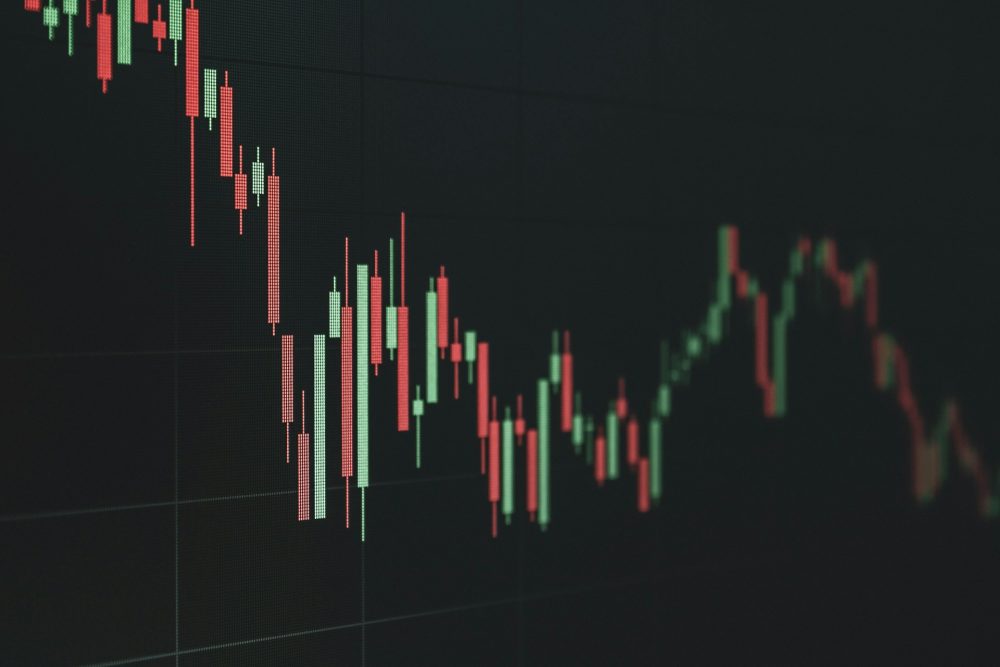Crypto
Blockchain helps Germany to drastically reduce its natural gas consumption
Germany managed to significantly reduce the consumption of natural gas, thanks to the implementation of blockchain. In order to be competitive in the new innovative world, oil and gas companies are also resorting to blockchain to cut costs. The giant of the global oil industry, the state-owned company Saudi Aramco decided to invest in the authorized capital of the Vakt blockchain platform.

In May, Germany reported that, for the first time in its history, the production of energy from alternative sources exceeded that of traditional natural gas and oil in the country’s energy balance.
A few years ago, the country adopted a strategy that meant the complete closure of nuclear power plants by 2022 and the abandonment of coal as an energy source by 2038. In such a situation, Germany had to rely heavily on natural gas supplies, but the May result was a significant milestone for the largest economy in the European Union. The distributed register technology appears to play a key role in rebalancing the energy mix.
If you want to find out how the blockchain technology helped Germany reduce its natural gas consumption and to be the first to read the most important financial news in the world, download the Born2Invest mobile app.
Blockchain marketplaces are the future of the energy sector in Germany
The blockchain technology helps to significantly reduce costs for alternative energy producers. In addition, it helps to ensure that all such enterprises, regardless of their size, can be connected to a single site where the consumer can choose among hundreds of energy suppliers in a free fluctuation of supply and demand.
Richard Logwasser, the co-founder of one such blockchain marketplaces Lition Energie, said that the project, which was launched in 2017, is actively developing, and by next winter more than one thousand residents and companies in more than a thousand cities in Germany will be connected to the blockchain marketplaces.
Among the company’s partners are well-known global corporations such as Microsoft, SAP and PowerCloud, as well as local companies SüdwestStrom and N26. The Ethereum Blockchain is used as a basis for transactions, and transaction fees are only $0.1, expressed in the USDC sticklercoin.
Companies in the gas and oil industry are also adopting the blockchain technology
The global oil and gas industry is taking a close look at the transformation of the energy sector in Germany. In order to be competitive in the new innovative world, oil and gas companies are also increasingly resorting to blockchain to cut costs.
For example, the OOC Oil & Gas Blockchain Consortium, which has already brought together 10 corporations including Dutch Shell, Equinor and ConocoPhillips, has already piloted distributed register technology.
Curiously, a blockchain platform developed by Data Gumbo Corporation was chosen as the base, behind which the investments of the oil giant Saudi Arabia, Saudi Aramco, are supported. The latter suggests that Saudi Arabia, the largest oil producer in OPEC, links the future development of the oil industry with the introduction of blockchain technology.
The giant of the global oil industry, the state-owned company Saudi Aramco decided to invest in the authorized capital of the Vakt blockchain platform, which is focused on the work of oil workers. Not even the size of the investment ($5 million) is noteworthy, but the fact that Saudi Aramco decided not to become just a member of Vakt, but intends to develop this platform as one of its co-owners.
According to Vakt itself, the funds that have already been received through the sale of shares will go just for development purposes, including expansion into Asian countries. Saudi Aramco itself intends to use the services of Vakt through its trading unit Aramco Trading.
__
(Featured image by Matryx via Pixabay)
DISCLAIMER: This article was written by a third party contributor and does not reflect the opinion of Born2Invest, its management, staff or its associates. Please review our disclaimer for more information.
This article may include forward-looking statements. These forward-looking statements generally are identified by the words “believe,” “project,” “estimate,” “become,” “plan,” “will,” and similar expressions. These forward-looking statements involve known and unknown risks as well as uncertainties, including those discussed in the following cautionary statements and elsewhere in this article and on this site. Although the Company may believe that its expectations are based on reasonable assumptions, the actual results that the Company may achieve may differ materially from any forward-looking statements, which reflect the opinions of the management of the Company only as of the date hereof. Additionally, please make sure to read these important disclosures.
First published in CLICK CHAIN, a third-party contributor translated and adapted the article from the original. In case of discrepancy, the original will prevail.
Although we made reasonable efforts to provide accurate translations, some parts may be incorrect. Born2Invest assumes no responsibility for errors, omissions or ambiguities in the translations provided on this website. Any person or entity relying on translated content does so at their own risk. Born2Invest is not responsible for losses caused by such reliance on the accuracy or reliability of translated information. If you wish to report an error or inaccuracy in the translation, we encourage you to contact us.

-

 Crowdfunding2 weeks ago
Crowdfunding2 weeks agoNewcleo Raises $85 Million to Advance Fourth-Generation Nuclear Reactors
-

 Markets20 hours ago
Markets20 hours agoMarkets, Jobs, and Precious Metals Show Volatility Amid Uncertainty
-

 Biotech1 week ago
Biotech1 week agoDNA Origami Breakthrough in HIV Vaccine Research
-

 Markets2 weeks ago
Markets2 weeks agoGold’s Historic Surge and Sudden Crash Signal Volatility, Not Defeat
























